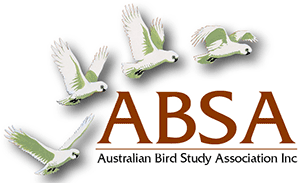MORPHOMETRIC MEASURES AS A MODERATE PREDICTOR OF GENDER IN THE WHITE-BROWED BABBLER Pomatostomus superciliosus girgandra
| Posted: |
11/04/2021 |
| Author(s): |
Bill Buttemer, Lee Astheimer, Marti Jane Anderson, Suzanne Oppenheimer |
White-browed Babblers have monomorphic plumage but exhibit size and weight dimorphism. Males are heavier, have longer
tarsi, wings, and culmens than females. Two hundred and eighty-three White-browed Babblers from the central western region
of NSW were sexed using laparotomy and discriminant function analysis was used to determine the extent to which
morphometric data could be used to identify gender. Cross-validation using a jackknife procedure indicated that 81 percent of
males and 84 percent of females were correctly identified using the resultant discriminant function. Culmen length contributed
most to the classification of gender followed by wing length and tarsus length. The discriminant function is presented as a
potentially useful non-invasive and inexpensive tool for gender identification in White-browed Babblers.
>> Download Abstract |
File Size: 6KB
>> Download Complete PDF | File Size: 430KB
